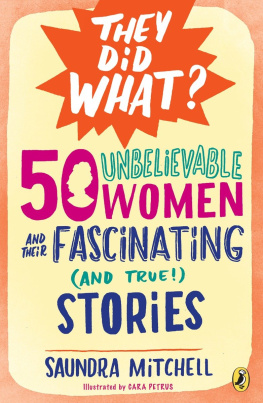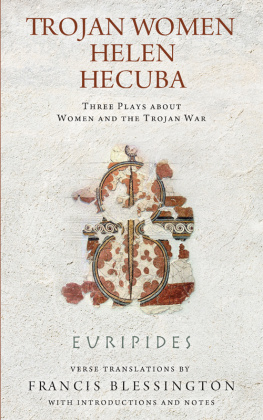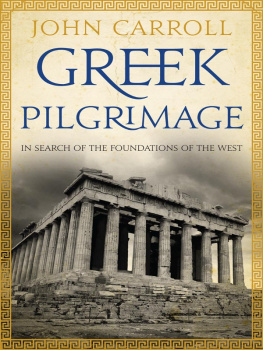WOMAN
VOLUME I
GREEK WOMEN
by
MITCHELL CARROLL, Ph.D.
Professor of Classical Philology in the George
Washington University
ASPASIA
After the painting by Henry Holiday.
Aspasia was born in Miletus. At an early age, accompanied
by another young girl, Thargelia, she went to Athens.
Their beauty and talents soon won them
distinction--Thargelia married a king of Thessaly, and Aspasia
married Pericles, "more than a king," says Plutarch.
The home of Aspasia in Athens was frequentrd by the lite
of the city and state, attracted by her beauty, her art
of speaking, and her influence. Socrates valued her great
mind, and even called himself one of her disciples. Plato
speaks of her great reputation. She was born in the fifth
century before Christ. The date of her death is not known.
WOMAN
In all ages and in all countries
VOLUME I
Illustrated
PHILADELPHIA
GEORGE BARRIE & SONS, PUBLISHERS
GENERAL INTRODUCTION
The history of woman is the history of the world. Strait orthodoxy may remind us that man preceded woman in the scheme of creation and that therefore history does not begin with woman; but this is a specious plea. The first historical information that we gain regarding Adam is concerned with the creation of woman, and there is nothing to show us that prior to that time Adam was more active in mind or even in body than a mollusc. It was not until the coming of woman that history began to exist; and if the first recorded act of the woman was disastrous in its consequences, at least it possesses the distinction of making history. So that it may well be said that all that we are we owe to woman. Whether or not the story of the Garden of Eden is to be implicitly accepted, there can be no doubt that from the moment of the first appearance of mankind on the scene woman has been the ruling cause of all effect.
The record of woman is one of extremes. There is an average woman, but she has not been found except in theory. The typical woman, as she is seen in the pages of history, is either very good or very bad. We find women saints and we find women demons; but we rarely find a mean. Herein is a cardinal distinction between the sexes. The man of history is rarely altogether good or evil; he has a distinct middle ground, in which we are most apt to find him in his truest aspect. There are exceptions, and many; but this may be taken as a rule. Even in the instances of the best and noblest men of whom we have record this rule will hold. Saint Peter was bold and cautious, brave and cowardly, loving and a traitor; Saint Paul was boastful and meek, tender and severe; Saint John cognized beyond all others the power of love, and wished to call down fire from heaven upon a village which refused to hear the Gospel; and it is most probable that the true Peter and Paul and John lived between these extremes. Not so with the women of the same story. They were throughout consistent with themselves; they were utterly pure and holy, as Mary Magdalene,--to whose character great wrong has been done in the past by careless commentary,--or utterly vile, as Herodias. Extremism is a chief feminine characteristic. Extremist though she be, woman is always consistent in her extremes; hence her power for good and for evil.
It is a mistaken idea which places the "emancipation" of woman at a late date in the world's history. From time immemorial, woman has been actively engaged in guiding the destinies of mankind. It is true that the advent of Christianity undoubtedly broadened the sphere of woman and that she was then given her true place as the companion and helper rather than the toy of man; but long before this period woman had asserted her right to be heard in the councils of the wise, and the right seems to have been conceded in the cases where the demand was made. Those who look upon the present as the emancipation period in the history of woman have surely forgotten Deborah, whose chant of triumph was sung in the congregation of the people and was considered worthy of preservation for all future ages to read; Semiramis, who led her armies to battle when the Great King, Ninus, had let fall the sceptre from his weary hand, and who ruled her people with wisdom and justice; and others whose fame, even if legendary in its details, has come down to us. Through all the ages there was opportunity for woman, when she chose to seize it; and in many cases it was thus seized. Rarely indeed do we find the history of any age unconcerned with its women. Though their part may at times seem but minor, yet do they stand out to the observant eye as the prime causes of many of the great events which make or mark epochs. When we think of the Trojan War, it is Agamemnon and Priam, Achilles and Hector, who rise up before our mental vision as the protagonists in that great struggle; but if there had been no Helen, there would have been no war, and therefore no Iliad or Odyssey. We read Macaulay's stirring ballad of Horatius at the Bridge, and we thrill at the recital of strength and daring; but if it had not been for the virtue of Lucretia, there would have been no combat for the bridge, and the Tarquins might have ended their days in peace in the Eternal City. And, in later times, though Mirabeau and Robespierre and Danton and Marat fill the eye of the student of the cataclysmic events of the French Revolution, it was the folly of Marie Antoinette that gave these men their opportunity and even paved the way for the rise and meteoric career of a greater than them all.
These are instances of mediate influence upon great events; but there have been many women who ham exerted immediate influence upon the story of mankind. That which is usually mistermed weakness is generally held to be a feminine attribute; and if we replace the term by the truer word,--gentleness,--the statement may be conceded. But there have been many women who have been strong in the general sense; and these have usually been terribly strong. Look at Catherine of Russia, vicious to the core, but powerful in intellect and will above the standard of masculine rulers. Look at Elizabeth of England, crafty and false, full of a ridiculous vanity, yet strong with a strength before which even such men as Burleigh and Essex and Leicester were compelled to bow. Look at Margaret of Lancaster, fighting in her husband's stead for the crown of England and by her undaunted spirit plucking victory again and again from the jaws of defeat, and yielding at last only when deserted by every adherent. Look at Clytemmstra and Lady Macbeth, creatures of the poet's fancy if you will, yet true types of a class of femininity. They have had prototypes and antitypes, and many.
Women have achieved their most decisive and remarkable effects upon the history of mankind by reaching and clinging to extremes. Extremism is always a mark of enthusiasm, and enthusiasm accomplishes effects which must have been left forever unattained by mere regulated and conscientious effort. The stories of the Christian martyrs show in golden letters the devotion of women to a cause; and I have no doubt whatever that it was in the deaths of young maidens, in their hideous sufferings borne with resignation and even joy, that there came the conviction of truth which is known as the seed which was sown in the blood of the martyrs. The high enthusiasm which supported a Catherine and a Cecilia in their hours of trial was strong to persuade where the death of a man for his convictions would have been looked upon as a matter of course. It is from this enthusiasm and extremism that there sounds one of the key-notes of woman's nature--her loyalty. Loyalty is one of the blending traits of the sexes; yet, if I were compelled to attribute it distinctively to one sex, I should class it as feminine in its nature.












